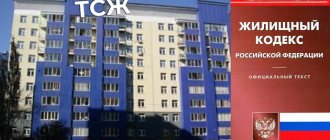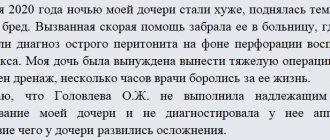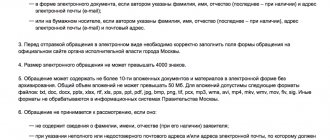On what issues can you contact the Constitutional Court of the Russian Federation?
An application to this institution is formed on the basis of numerous and strict rules.
Typically, citizens file a complaint with the Constitutional Court on the following grounds:
- a citizen cannot exercise his constitutional freedoms and rights due to current regulations and laws;
- doubts arise regarding the compliance of laws or acts with the provisions of the Constitution of the Russian Federation;
- a citizen wants to hold representatives of government agencies accountable, since they carry out actions that do not fall within their competence and position.
When drawing up a complaint, only relevant personal information is indicated, and links to regulations are also provided. Only data that cannot be disputed are provided.
Individuals represented by Russian citizens, as well as foreigners who reside in the territory of the Russian Federation on the basis of official permission, can apply.
Additionally, the applicants are business owners who have encountered violations of their rights during cooperation with government agencies. Even representatives of government authorities at different levels can file a complaint. Important! It is allowed to submit collective appeals if the rights of all members of one team are violated by the provisions of a particular norm.
After considering this application, the judge may make different decisions:
- leaving a document without consideration because it was drawn up with violations or contains false information;
- making a decision on a complaint without holding a court hearing;
- consolidation of several investigations into one case;
- conducting a trial.
All well-formed complaints are considered at a meeting. At least 2 thirds of the judges must participate. Additionally, the applicant and the defendant are summoned. If necessary, experts, witnesses and other persons are involved in the proceedings. Applications that are carelessly drawn up or do not comply with the standards will not be accepted for processing.
The constitutional judge may require from the applicant or respondent additional materials relevant to the case. If necessary, he calls in specialists to provide clarification on certain issues. In this case, the meeting can be open or closed.
It is also useful to read: Online voting for amendments to the Constitution
Stages of consideration of a case in the Constitutional Court
After filing a complaint, the applicant should be patient and prepare for a lengthy legal process, which includes several stages:
- Submitting a claim to the Secretariat . This stage involves a detailed study of the document, searching for errors and inaccuracies. If defects are identified, the complaint is returned to the plaintiff for correction. The procedure is repeated until all inaccuracies are eliminated.
- Preliminary examination of the application . This procedure is carried out by several judges. The petition is studied, subjecting all facts and circumstances to a thorough analysis, after which a decision is made on its admission to consideration. The preliminary review stage can last up to 3 months.
- Court hearing . This stage has the same features as the consideration of the case in the primary court.
- Adoption of the verdict and its publication . Some time after the hearing is completed, the court will issue a ruling. Participants in the proceedings will be called into the courtroom, where the verdict will be announced. After approval of the resolution, it will be published on the website of the Constitutional Court of the Russian Federation, and paper copies will be sent to the participants in the process.
- Clarification stage . The court rarely gives any comments on the case. In most cases, the decision of the Constitutional Court is perceived as extremely clear, legal and does not require explanation or appeal.
Refusal to consider the case can come at any stage, so it is recommended to file a complaint with the help of a competent lawyer. A specialized expert will tell you how to draw up a document correctly, and, if necessary, will independently resolve all issues.
How to apply to the Constitutional Court correctly for an individual
In order for a document to be accepted for consideration, clear requirements are taken into account during its preparation. Based on Art. 36 of the Federal Law on the Constitutional Court, the reason for starting a trial is the receipt of a complaint, request or petition that meets the requirements of the law.
General requirements include:
- the complaint must be submitted exclusively in writing;
- signed by the applicant;
- personal information about the compiler, provided by his full name and residential address, is indicated;
- if the applicant is a legal entity, then the name and legal address of the enterprise is provided;
- the circumstances of the case presented as the basis for writing the complaint are listed;
- the requirements of the compiler are given;
- links are provided to regulatory documents on the basis of which the applicant has the right to file a complaint;
- the documents attached to the application are listed;
- The date the request was generated is indicated.
It is advisable to use the help of a professional lawyer when drawing up a document, since even minor errors or inaccuracies are grounds for refusal to consider the complaint.
Example of a complaint:
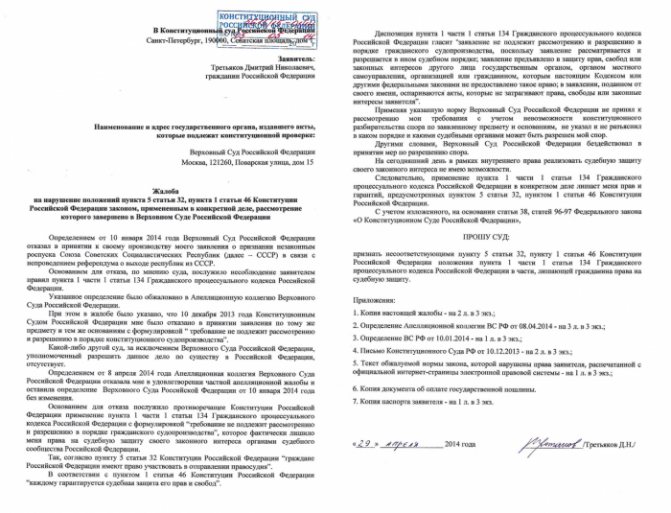
To the Constitutional Court of the Russian Federation 103132, Moscow, st. Ilyinka, 21
Applicant: Plekhanova Lyubov Vasilievna Address: 644122, Omsk, st. 1 Severnaya, house 41, Russian citizenship
Name and address of the government agency that issued the law whose constitutionality is being challenged:
State Duma of the Federal Assembly of the Russian Federation, address: 103265, Moscow, st. Okhotny Ryad, 1
Name of the law being appealed: Civil Code of the Russian Federation (Part One) dated November 30, 1994 No. 51-FZ; The norm being appealed: part 4, article 252)
Source of publication: “Collection of Legislation of the Russian Federation”, 05.12.1994, N 32, art. 3301, “Rossiyskaya Gazeta”, N 238-239, 12/08/1994.
Complaint to review the constitutionality of the law applied in the applicant’s specific case
I. The norms of the Constitution of the Russian Federation and the Federal Constitutional Law “On the Constitutional Court of the Russian Federation”, giving the right to appeal to the Constitutional Court of the Russian Federation and the basis for the appeal.
In accordance with Article 125 of the Constitution of the Russian Federation, the Constitutional Court of the Russian Federation, upon complaints of violation of the constitutional rights and freedoms of citizens and at the request of the courts, verifies the constitutionality of the law applied or to be applied in a particular case, in the manner established by federal law.
In accordance with Article 96 of the Federal Constitutional Law of the Russian Federation “On the Constitutional Court of the Russian Federation”, the right to appeal to the Constitutional Court of the Russian Federation with an individual or collective complaint about a violation of constitutional rights and freedoms belongs to citizens whose rights and freedoms are violated by the law applied or subject to application in specific case, and associations of citizens, as well as other bodies and persons specified in federal law.
In accordance with Article 36 of the Federal Law “On the Constitutional Court of the Russian Federation”, the reason for considering a case in the Constitutional Court of the Russian Federation is an appeal to the Constitutional Court of the Russian Federation in the form of a request, petition or complaint that meets the requirements of this Federal Constitutional Law. The basis for considering the case is the revealed uncertainty regarding the question of whether a law or other normative act complies with the Constitution of the Russian Federation...
In accordance with Part 2 of Article 74 of the Federal Law “On the Constitutional Court of the Russian Federation”, the Constitutional Court of the Russian Federation makes a decision on the case, assessing both the literal meaning of the act in question and the meaning given to it by official and other interpretation or established law enforcement practice, as well as based on its place in the system of legal acts.
The basis for this appeal to the Constitutional Court of the Russian Federation was the uncertainty as to whether the Constitution of the Russian Federation (part 1 of Article 19, part 1, 2 of Article 35, part 1 of Article 40) complies with the provisions of part four of Article 252 of the Civil Code of the Russian Federation, in the part in which they, according to the meaning given to them by law enforcement practice, allow the possibility of payment to a participant in shared ownership by the remaining owners, upon their request, of compensation instead of allocating a share in kind in the absence of a claim brought to court by this participant in shared ownership for the allocation of their share from the common property.
II. Description of the circumstances indicating the application of the appealed norms in the applicant’s specific case
Plekhanova L.V. filed a lawsuit against Garon P.M., Poltarakina L.V., Bukhovets N.V., Kalinichenko E.V. about moving into housing construction No. 39 on the street. 3 Station in the city of Omsk and determining the procedure for using the specified residential premises on the basis that she is the owner of 1/12 of the share of the disputed house, and the defendants are creating obstacles to the right to use the residential premises. By the decision of the Leninsky District Court of Omsk dated January 31, 2006, the claims of L.V. Plekhanova were satisfied.
On March 22, 2006, by the ruling of the Judicial Collegium of the Omsk Regional Court, the decision of the Leninsky District Court of Omsk dated January 31, 2006 was left unchanged, and the cassation appeal of the defendant Kalinichenko E.V. without satisfaction. At the same time, in a ruling dated March 22, 2006, the Judicial Collegium of the Omsk Regional Court indicated the following:
“From the case materials it appears that Kalinichenko E.V. did not make a demand for the division of property by paying monetary compensation (clause 4 of Article 252 of the Civil Code of the Russian Federation). It should be borne in mind that Kalinichenko E.V. it was necessary to determine the market value of the disputed homeownership and place a sum of money equal to 1/12 of the market value of the house in the bank account of the Office of the Judicial Department under the Armed Forces of the Russian Federation in the Omsk Region. Kalinichenko E.V. is not deprived of the right to bring the above-mentioned claim to court.”
Taking advantage of the above explanation of the Judicial Collegium of the Omsk Regional Court, Kalinichenko E.V., as the owner of 11/12 shares of residential building No. 39 on the street. 3rd Station in Omsk filed a lawsuit against L.V. Plekhanova, who is the owner of 1/12 shares of the disputed residential building, for the division of property by paying monetary compensation.
By the decision of the magistrate of judicial district No. 61 of the Leninsky administrative district of Omsk dated September 19, 2006, Kalinichenko E.V. in a claim against L.V. Plekhanova the division of property by payment of monetary compensation was refused.
By the appeal decision of the Leninsky District Court of Omsk dated December 8, 2006, the decision of the magistrate of court district No. 61 dated September 19, 2006 was canceled, Kalinichenko E.V. was recognized as having ownership of a 1/12 share of the disputed residential building, Kalinichenko E.V. is obliged to pay Plekhanova L.V. monetary compensation of 40,000 (forty thousand) rubles for her 1/12 share in the ownership of house No. 39 on the street. 3rd Station in Omsk.
By a ruling of the judge of the Omsk Regional Court dated May 28, 2007, the claim of E.V. Kalinichenko against L.V. Plekhanova for the division of property by payment of monetary compensation was denied. At the same time, the definition states that “the argument of the supervisory complaint that the requirement to pay compensation for the share can be satisfied only if a claim is filed by the spin-off owner is based on an incorrect interpretation of the law.”
III. The applicant’s position on the issue he raised and its legal basis with reference to the relevant norms of the Constitution of the Russian Federation.
According to Part 1 of Article 19 of the Constitution of the Russian Federation, everyone is equal before the law and the court.
According to parts 1, 2 of Article 35 of the Constitution of the Russian Federation, the right of private property is protected by law. Everyone has the right to own property, own, use and dispose of it, both individually and jointly with other persons.
According to Part 1 of Article 40 of the Constitution of the Russian Federation, everyone has the right to housing. No one can be arbitrarily deprived of their home.
According to Part 1 of Article 235 of the Civil Code of the Russian Federation, the right of ownership is terminated when the owner alienates his property to other persons, the owner renounces the right of ownership, the destruction or destruction of property and when the right of ownership to property is lost in other cases provided for by law.
Clause 7 of part two of Article 235 of the Civil Code of the Russian Federation allows for the forced confiscation of property from the owner, in particular, in the case provided for in paragraph 4 of Article 252 of the Civil Code of the Russian Federation.
According to Part 3 of Article 252 of the Civil Code of the Russian Federation, if the participants in shared ownership fail to reach an agreement on the method and conditions for dividing the common property or allocating the share of one of them, the participant in shared ownership has the right to legally demand the allocation in kind of their share from the common property.
If the allocation of a share in kind is not permitted by law or is impossible without disproportionate damage to property in common ownership, the allocated owner has the right to have the value of his share paid to him by other participants in shared ownership.
According to Part 4 of Article 252 of the Civil Code of the Russian Federation, the disproportion between the property allocated in kind to a participant in shared ownership on the basis of this article and his share in property rights is eliminated by payment of an appropriate sum of money or other compensation.
Payment of compensation to a participant in shared ownership by the remaining owners instead of allocating his share in kind is permitted with his consent. In cases where the owner’s share is insignificant, cannot be realistically allocated and he does not have a significant interest in the use of the common property, the court may, even in the absence of the consent of this owner, oblige the remaining participants in the shared ownership to pay him compensation.
According to Part 5 of Article 252 of the Civil Code of the Russian Federation, upon receipt of compensation in accordance with this article, the owner loses the right to a share in the common property.
According to the above norms of Article 252 of the Civil Code of the Russian Federation, provided that the owner’s share is insignificant, cannot be realistically allocated and there is no significant interest in the use of the common property, the court, even in the absence of the owner’s consent, has the right to oblige the remaining participants in the shared ownership to pay him compensation. At the same time, an analysis of the legal norms contained in parts 3 and 4 of Article 252 of the Civil Code of the Russian Federation allows us to conclude that the procedure for forced seizure of property from the owner, enshrined in part 4 of Article 252 of the Civil Code of the Russian Federation, can be applied only if this owner makes demands for allocation of a share in kind. The right to demand the allocation of a share in court is the power of the owner - participant in the common shared property.
Within the meaning of the rules of law enshrined in Part 4 of Article 252 of the Civil Code of the Russian Federation, claims for the allocation of a share in kind indicate the reluctance of this owner to use this property together with other participants in shared ownership, the loss of interest in owning and using the share in the right to property. Therefore, the legislator makes the court’s right to terminate common shared ownership by forced seizure of property in accordance with Part 4 of Article 252 of the Civil Code of the Russian Federation dependent on the will of the owner himself, who wished to allocate a share in kind. However, the legal technique of the contested norm does not allow us to come to a conclusion about its compliance with the criterion of certainty.
In our opinion, the provisions of part four of Article 252 of the Civil Code of the Russian Federation contradict the Constitution, its articles 19 (part 1), 35 (part 1,2), 40 (part 1) since they contain norms that are defective from the point of view of legal technology. The legal construction of part four of Article 252 of the Civil Code of the Russian Federation makes it possible to apply the rule of law enshrined in the second sentence of the second paragraph of part 4 of Article 252 of the Civil Code of the Russian Federation, out of context with other legal norms enshrined in Article 252 of the Civil Code of the Russian Federation, which leads to forced seizure of property from the owner in the absence of the latter's will, terminate the right of shared ownership.
The indicated lack of legal construction of the provisions of part four of Article 252 of the Civil Code of the Russian Federation, which makes it possible for them to be arbitrarily applied, allows us to conclude that these provisions do not comply with the requirements of Article 19 (Part 1) of the Constitution of the Russian Federation. The Constitutional Court of the Russian Federation has repeatedly expressed itself in its Resolutions on the criteria for the certainty of a legal norm. In particular, in the Resolution of the Constitutional Court of the Russian Federation dated July 15, 1999 No. 11-P, the following was stated: “... the criterion for the certainty of a legal norm as a constitutional requirement for the legislator was formulated in the Resolution of the Constitutional Court of the Russian Federation dated April 25, 1995 in the case of verifying the constitutionality of an article 54 of the Housing Code of the RSFSR. The general legal criterion of certainty, clarity, and unambiguity of a legal norm follows from the constitutional principle of equality of all before the law and the court (Article 19, Part 1, of the Constitution of the Russian Federation), since such equality can be ensured only subject to a uniform understanding and interpretation of the norm by all law enforcement officials. The uncertainty of the content of a legal norm, on the contrary, allows for the possibility of unlimited discretion in the process of law enforcement and inevitably leads to arbitrariness, and therefore to a violation of the principles of equality, as well as the rule of law.”
The explanation contained in paragraph 36 of the joint Resolution of the Plenums of the Supreme Court of the Russian Federation and the Supreme Arbitration Court of the Russian Federation No. 6/8 of July 1, 1996 “On some issues related to the application of part one of the Civil Code of the Russian Federation” does not ensure uniformity of understanding of the contested norms:
“If it is impossible to divide property between all participants in common property or to allocate a share in kind to one or more of them, the court, at the request of the separating owner, has the right to oblige the remaining participants in shared ownership to pay him monetary compensation, upon receipt of which the co-owner loses the right to a share in the common property.
In exceptional cases, when the share of a co-owner is insignificant, cannot be realistically allocated and he does not have a significant interest in the use of the common property, the court may, even in the absence of the consent of this co-owner, oblige the remaining participants in the shared ownership to pay him compensation (clause 4 of Article 252 of the Code).
The question of whether a participant in shared ownership has a significant interest in the use of common property is decided by the court in each specific case on the basis of a study and assessment of the totality of evidence presented by the parties, confirming, in particular, the need for the use of this property due to age, health, professional activity, presence of children, other family members, including disabled people, etc.
These rules, in accordance with Article 133 of the Civil Code, are also applied by the courts when resolving a dispute about the allocation of a share in the right of ownership of an indivisible thing (for example, a car, a musical instrument, etc.), with the exception of the division of property of a peasant (farm) farm.
In some cases, taking into account the specific circumstances of the case, the court may transfer an indivisible thing into the ownership of one of the participants in shared ownership who has a significant interest in its use, regardless of the size of the shares of the other participants in the common property, with compensation to the latter for the value of their share.”
The legal construction of paragraphs 1 and 2 of paragraph 36 of the above Resolution is similar to the legal construction of part four of Article 252 of the Civil Code of the Russian Federation, and also allows the courts to be guided by the explanations given in the second paragraph of paragraph 36 of the Resolution outside the context of the first paragraph of paragraph 36 of the Resolution, which leads to forced seizure from the owner property in the absence of the latter's will to terminate the right of shared ownership.
IV. A demand addressed in connection with a complaint to the Constitutional Court of the Russian Federation.
Based on the above, I ask the Court:
To recognize as inconsistent with the Constitution of the Russian Federation, its Articles 19 (Part 1), 35 (Part 1, 2) and 40 (Part 1) the provisions of Part 4 of Article 252 of the Civil Code of the Russian Federation to the extent that they are in the meaning given to them by law enforcement practice, allow the possibility of payment to a participant in shared ownership by the remaining owners, upon their request, of compensation instead of allocating a share in kind in the absence of a demand filed by this participant in shared ownership to the court for the allocation of their share from the common property.
Date _________________
Signature of the applicant _________________________________ /L. V. Plekhanova/
Application:
1. Complaint to the Constitutional Court of the Russian Federation 3 copies; 2. Text of Article 252 of the Civil Code of the Russian Federation – 3 copies; 3. copy of the Decision of the Leninsky District Court of Omsk dated January 31, 2006 - 3 copies; 4. copy of the cassation ruling of the Judicial Collegium for Civil Cases of the Omsk Regional Court dated March 22, 2006 - 3 copies; 5. copy of the decision of the magistrate of judicial district No. 61 of the Leninsky administrative district of Omsk dated September 19, 2006 - 3 copies; 6. copy of the appeal decision of the Leninsky District Court of Omsk dated December 8, 2006. – 3 copies; 7. copy of the decision of the judge of the Omsk Regional Court refusing to file a claim dated May 28, 2007. – 3 copies; 8. Receipt for payment of state duty.
Regarding this complaint, see the ruling of the Constitutional Court of the Russian Federation dated February 19, 2009 N 102-О-О
We also recommend on this topic:
- About compensation instead of allocating a share in kind. On the practice of applying paragraph 4 of Article 252 of the Civil Code of the Russian Federation by courts of general jurisdiction.”
- Judicial practice of applying Article 252 of the Civil Code of the Russian Federation - payment of monetary compensation instead of allocating a share in kind
All documents to the court (procedural documents):
Statements of claim to court; Applications to court (public legal relations, special proceedings..); Petitions to court, statements; Objections (response) to the statement of claim, complaint, arguments to the court; Complaints to the court (appeal, cassation, supervisory, private); Complaints against a decision in a case of an administrative offense; Complaints to the prosecutor's office and other authorities; Complaints, statements, petitions in criminal proceedings; Other procedural documents; Pre-trial claims (samples), demands, responses to claims.
What documents are attached to the application?
Other documentation is attached to the official application sent to the Constitutional Court.
These include:
- an act or other document that needs to be checked for compliance with the provisions of the Constitution;
- a receipt for payment of the state duty, with individuals paying 450 rubles, and business representatives must pay 6,750 rubles;
- if a person whose rights have been violated uses the help of a representative, then a notarized power of attorney containing a list of delegated powers is required;
- if the compiler is a foreigner, then he creates the text in his native language, but in addition the document is translated into Russian;
- other materials serving as evidence of the applicant’s correctness.
Attention! All documents are transferred to the representative of the Constitutional Court in a single copy.
Some individuals receive a fee waiver. These include Heroes of the Russian Federation or the USSR, former prisoners of concentration camps, holders of the Order of Glory and participants of the Second World War. Documentation is accepted not only on paper, but also in electronic form.
No obscene language, slang, insults or threats are allowed. Only a business style is chosen, and the material must be presented sequentially so that the judge can understand the problem.
Consequences
In court, secretaries check the complaint. They look at compliance with the drafting and execution requirements, and also check the attached documents. If there are any violations, the application will be returned for correction, after which it can be submitted again.
After verification by the secretariat of the Constitutional Court, the case is transferred for consideration to judges appointed by the chairman of the Constitutional Court. After their assessment of the complaint, a court hearing will be scheduled.
It may take three months from the filing of the complaint to the court hearing. The process involves the applicant, a representative of the government agency that issued the disputed legal act, as well as representatives of the parties (if they themselves want to invite them).
Additional witnesses and experts are called. The decision of the Constitutional Court of the Russian Federation cannot be appealed. If the plaintiff's demands are satisfied:
- The appealed law is annulled.
- Court decisions based on this rule of law will be overturned.
- A new act will be adopted to replace the canceled one.
- The applicant's case will be reviewed taking into account changes in legislation.
Cancellation of a court decision and review of the case occur within 6 months after the decision of the Constitutional Court of the Russian Federation is adopted, but in some cases the period may be extended.
Procedure and methods for submitting an application
There are several ways in which a complaint is brought before a judge. These include:
- personal visit to the CS reception room;
- sending documentation by mail, but for this purpose only a registered letter is used with a list of the contents, declared value and acknowledgment of delivery;
- It is allowed to use the electronic form of the document, which is sent through your personal account on the CC website.
If an electronic format is selected, then through your personal account you are additionally offered the opportunity to track the progress of the complaint. First, 3 days are given for the documentation to be checked by secretariat employees. They must make sure that the papers and information provided are reliable and that the documentation is correctly completed.
If violations are discovered, the applicant can make corrections, and if the citizen does not respond to the demands of representatives of the Constitutional Court, then his complaint is canceled.
The applicant must prepare for the court hearing at which all appeals are considered. Typically, a hearing on a claim is scheduled three months after the complaint is registered. The decision is made by a panel of judges within a few hours.
If it is positive, then this leads to the following consequences:
- a norm that has lost force is considered appealed;
- the court decision or any of its clauses is annulled;
- a new regulatory act is adopted;
- a case is reviewed on the basis of the provisions of the Constitution.
Reference! Sometimes, directly during the proceedings, the judge suspends the operation of the disputed law or act until a decision is made.
Useful video
Advice from a lawyer on applying to the Constitutional Court:
Shipping methods
To file a complaint with the Constitutional Court of the Russian Federation, a citizen can choose any of the options below:
- by mail or during a personal visit to the CS;
- to your email;
- through the official website.
Actual addresses of the Constitutional Court:
- For postal items - 190000, St. Petersburg, Senate Square, building 1.
- For a personal visit - St. Petersburg, st. Galernaya, building 1 (open from 10:00 to 17:00 from Monday to Thursday and from 10:00 to 16:00 on Friday and on holidays, every working day from 12:00 to 13:00 - break).
- The representative office of the Constitutional Court in Moscow (Ilyinka St., building 21, entrance No. 3) is authorized to provide advice on filing complaints, but is not involved in receiving and considering them.
When sending an appeal by mail, you should use special ones that allow you to track the route of the letter, record its contents and the moment of receipt by the addressee.
Email box for filing complaints with enhanced EPC: [email protected]
To complain to the Constitutional Court, you can also use a special service on the official website of the government agency - https://petition.ksrf.ru. But before gaining access to it, the applicant will need to register:
- Fill out the electronic form - enter your personal, contact information, TIN.
- Attach documentary evidence of information about yourself in the format of scanned copies of the relevant pages of the passport (page spread with photo is required).
- Confirm your account via email.
Registration form:
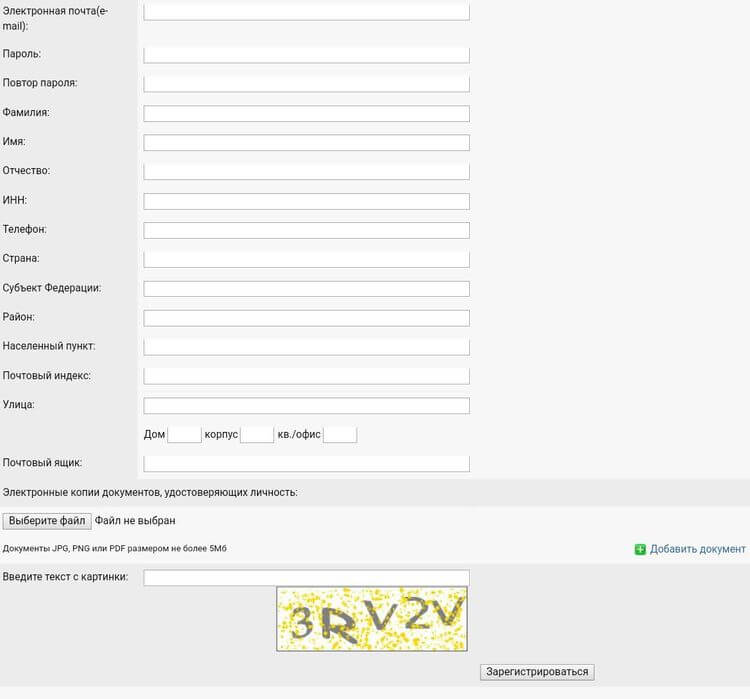
After these steps, the ability to send a message will become available.
It may take up to three days for the Secretariat to verify the entered information. And if it is unreliable or if other inconsistencies are detected, the applicant is notified and asked to correct the existing inaccuracies within three days. Otherwise, the account and the complaint created through the service will be cancelled.
Why contact a lawyer
The strict requirements for a complaint to the constitutional court, the need for good knowledge of the legislative framework, the style of writing a document require the involvement of a lawyer at all stages of its preparation from the moment of specific determination of a legislative contradiction and violation of a constitutional norm until the transfer of the document to the court secretariat. Professional analysis of the essence of the appeal and preparation of the appeal is one of the prerequisites for a successful outcome of the trial.
If you decide to file a complaint with the Constitutional Court, please consult with our lawyer first. Even an initial consultation with an experienced lawyer will allow you to save a lot of time and help you resolve such an important issue as protecting your constitutional rights.


